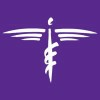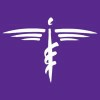Patients who seek services from Free Clinics of Iowa (FCI) often struggle with access to a variety of resources in addition to health care, including limitations in food security, clothing, housing, transportation, insurance assistance and technology access points, among others.
FCI is implementing a new referral process to address these challenges, which are summarily labeled as social “determinants of health” (DOH). Healthy People 2020 defines DOH as “the range of personal, social, economic and environmental factors that influence health status.”
According to Wendy Gray, FCI executive director, the clinics are modifying their database by replacing specific health insurance questions with a more general inquiry and reporting about what DOH challenges the patient may be facing at that point in time. FCI recognized the need for referrals to these services as a way to create pathways in hopes of improving health equity.
To implement the new referral system, FCI sought out assistance from a Des Moines University master’s of health care administration student and selected Kelsey Church, D.P.T.’17, M.H.A.’18, to manage the project.

“I have always tried to approach health care from a holistic point of view,” says Church, who was connected with the project through the academic assistant for the MHA program, Megan Martin. “Now, having a doctorate in physical therapy, I want my future patients to feel like I care about their health as a whole and not just help them with the initial issue that brought them to me.”
Church will be responsible for identifying and promoting community-based DOH services/resources available for distribution in each of the FCI member clinics.
“This project aligns with my academic goals because it combines my clinical degree with my health care administration degree,” Church says. “Ever since I started my master’s program, I have wanted to find ways to incorporate both degrees together into projects and potential connections for the future when I am out practicing as a therapist.”
FCI and DMU have a long history of collaboration, and many students from clinical programs volunteer at weekly clinics to gain hands-on experience during their time on campus.

